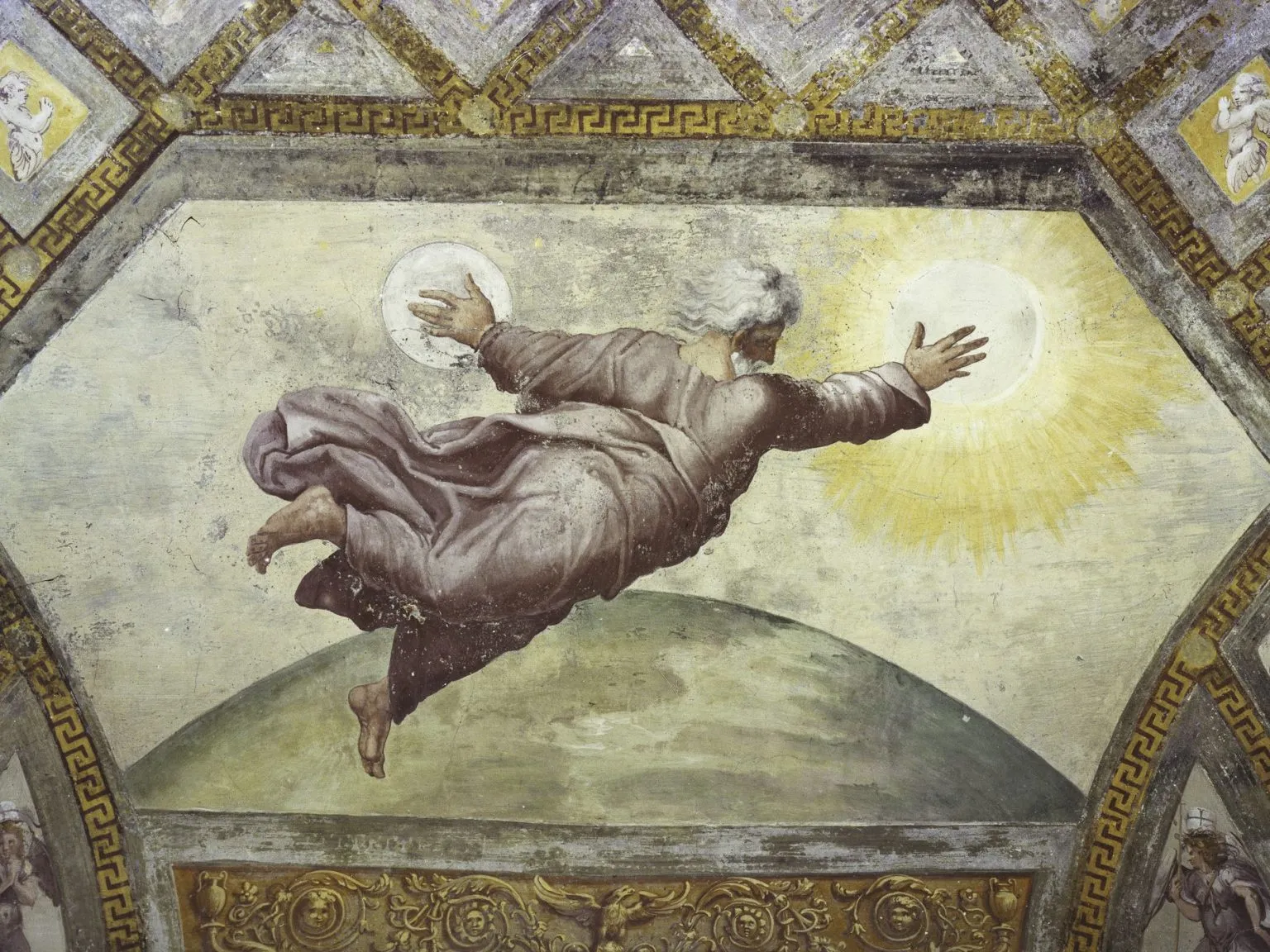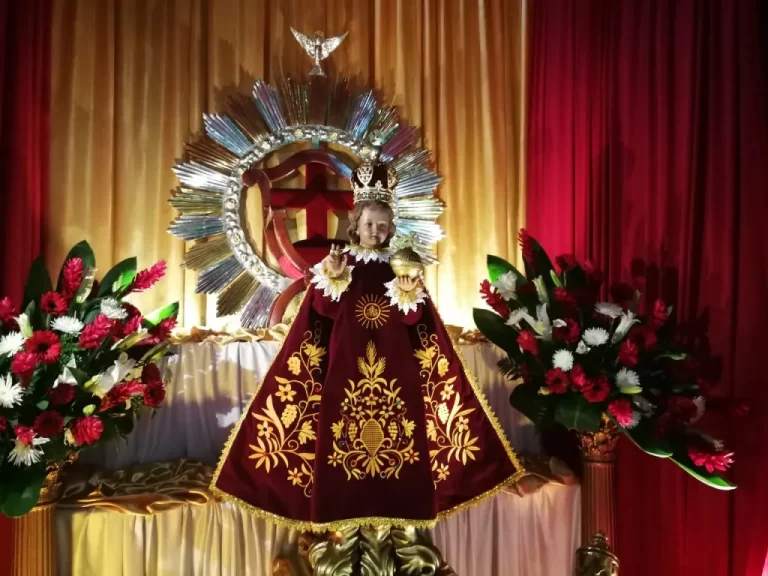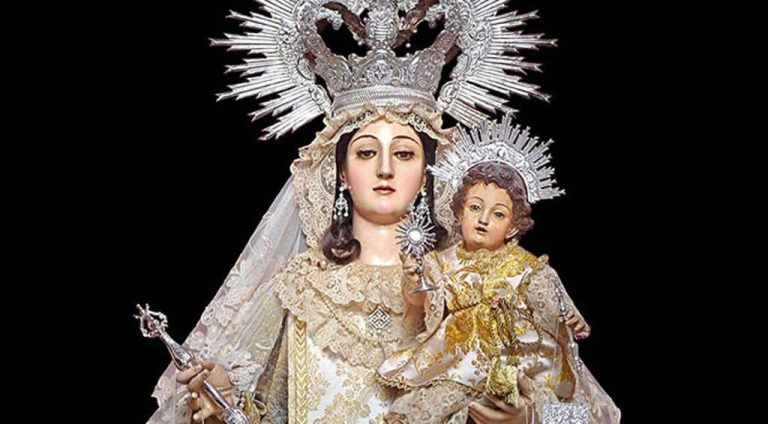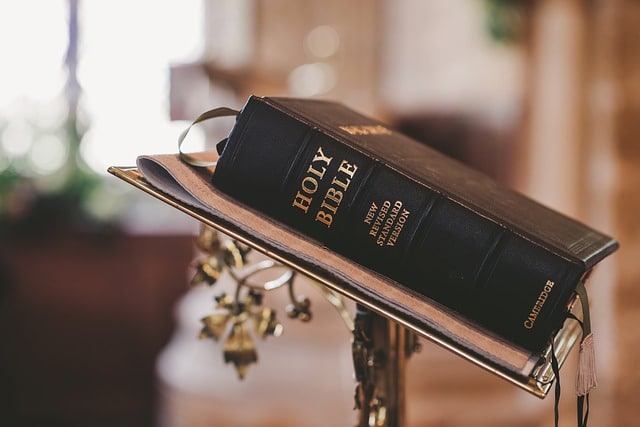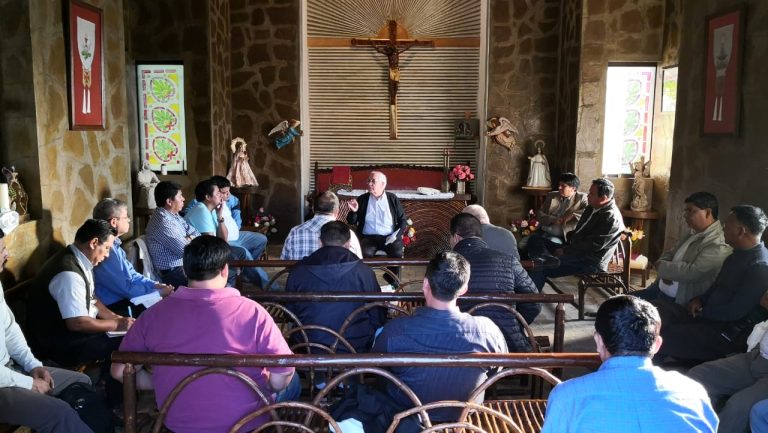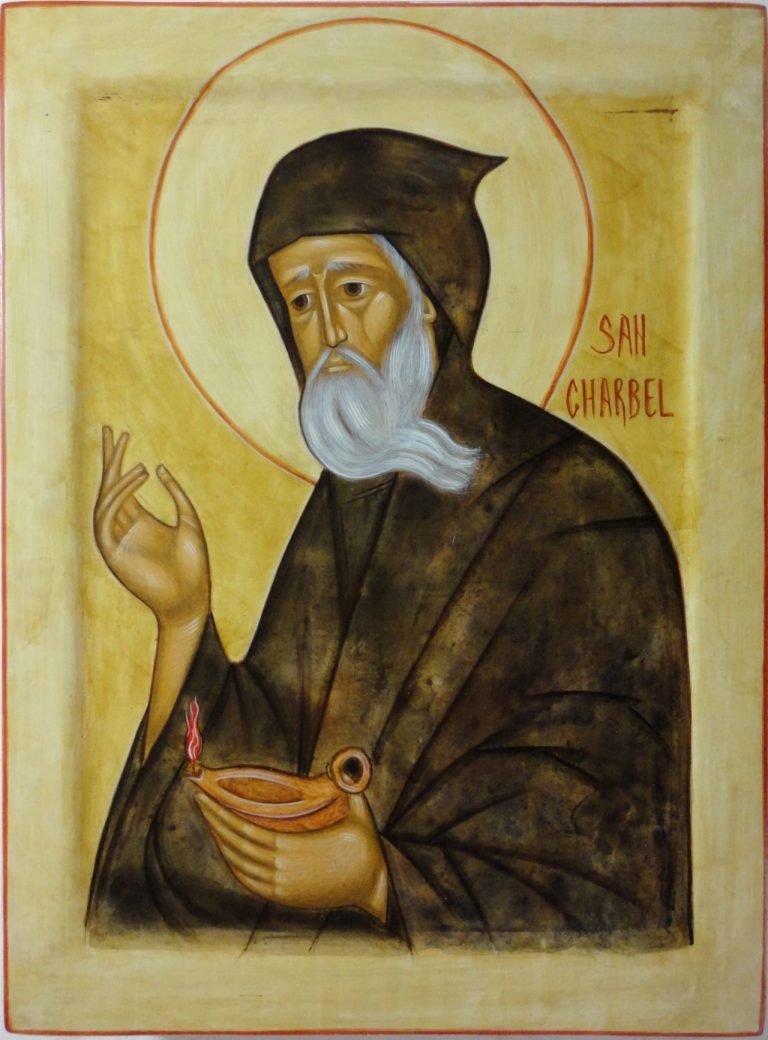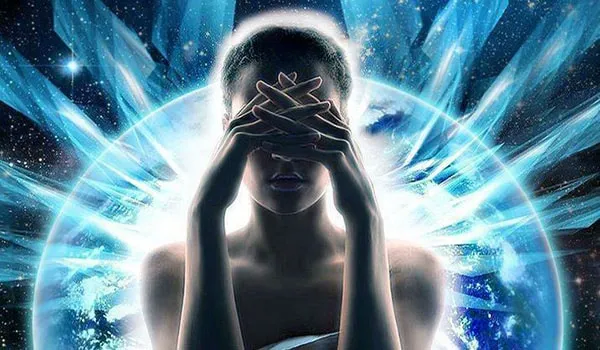The Creation of Man according to various theories
The dilemma about the human origin, whether by the Creation of Man by divine hands or by natural evolution, is a discussion that still persists in cultural, political and theological sectors. Although in these times the level of acceptance of the theory of evolution is extremely high, the controversy is still present, particularly in Protestant religious sectors of the United States.
Who is Man, why and for what has he been Created?
We have known thanks to Genesis that “God formed man in his own image, in the image of the Lord he was created, male and female he formed them”. But what does “in the image of God” mean? who is truly the man? Why and what was this creation for? Is it just another creature in the middle of a natural environment? Where is his soul?
Eight questions about the creation of man according to the Bible : his honor, the importance of the body and the existence of the soul, the similarity with other men and the distinction with the rest of the creatures.
What differentiates Man from the rest of the creatures?
“God formed man in his own image, in the image of the Lord he was created, male and female he formed them” (Gen 1:27). Man occupies an exclusive place in creation: «he is created in the image of God» (I); in the very essence of it unifies the spiritual world and the material world (II); he is formed “man and woman” (III); God arranged him in friendship with him (IV). (Catechism of the Catholic Church, 355)
That is the great audacity of Christian belief: to spread the importance and honor of the human essence, and to ensure that, by the grace that raises us to the superhuman order, we have been formed to achieve the dignity of children of God. Truly incredible audacity, if it were not based on the redemptive decree of God the Father, and had not been corroborated by the blood of Christ and ratified and made possible by the continuous action of the Holy Spirit. (Christ is passing by, 133)
For what reason has Man been created with such dignity?
Of all the observable beings, only man has the “power to know and adore his Creator” (GS 12,3); he is the “only being on earth whom God has worshiped for himself” (GS 24,3); only he is summoned to be part, through understanding and love, in the existence of God. For this he has been formed and this is the essential reason for his dignity: «For what thing, or by whom, was it the cause that you placed man in similar dignity?
Truly, nothing that was not the inexhaustible love with which you observed your creature in yourself and let it captivate you with adoration for it; for love you formed him, for love you gave him a being with the power to taste your Perpetual Good” (Saint Catherine of Siena, Il dialogo della Divina providenza, 13). (Catechism of the Catholic Church, 356)
Among the faculties of the Holy Spirit, it should be mentioned that there is one of which all Christians have a particular need: the faculty of erudition which, by making us know of God and taste of God, puts us in a condition to be able to estimate with truth about the situations and things of this existence.
If we were congruent with our belief, when looking around us and seeing the panorama of history and the world, we could only perceive that similar feelings rise in our hearts as those that excited that of Jesus Christ: when contemplating those crowds I felt sadness for them , since they were badly prepared and decayed, like sheep without a guide. (Christ is passing by, 133)
What does it mean that Man has been created in the Image of God?
God and man , the first formed the second in his image, man has the dignity of a person; he is not just something, but someone. He has the power to know himself, to have himself and to give himself freely and enter into communion with other individuals; and he is summoned, by grace, to a union with his Creator, to offer her a response of faith and love that no other being can grant for him. (Catechism of the Catholic Church, 357)
The God of our belief is not a distant being, who impassively observes the fortunes of men. He is a Father who passionately adores his children, a Creator God who overflows with affection for his beings. And he grants man the great prerogative of being able to worship, thus transposing the transient and the temporary.
Human existences, which are sacred, since they come from God, cannot be treated as simple things, as figures of a statistic. By meditating on the deep reality of life, the most noble affections are evaded from the human heart. With what adoration, with what affection, with what eternal patience do parents contemplate their children even before they come into the world!
And isn’t there not equally inexhaustible benevolence, interest in the concrete, or patience of judgment, the theologian who crumbles the meaning of the divine word about human life? Or is it not equally desired expectation, power of intuition, vividness of ingenuity, that of the doctor who prescribes the most modern remedies to prevent the risk of a congenital ailment, which perhaps endangers the existence of the unborn child? (University Speeches: The commitment of the truth)
The Creation of Man: What was Man Created for?
God formed everything for man (cf. GS 12,1; 24,3; 39,1), but man was formed to serve and adore God and to offer him all of creation: «What, then, is the creature who is going to come into existence surrounded by similar consideration? He is man, a great and splendid living figure, more valuable in the eyes of God than the entire creation.
He is man, for him there is heaven and earth and sea and all creation, and God has given so much importance to his redemption that he has not absolved his only begotten Son for him. Since God has not stopped doing everything feasible for man to ascend to him and sit at his right hand »(Saint John Chrysostom, Sermones in Genesim, 2,1: PG 54, 587D – 588A). (Catechism of the Catholic Church, 358)
What do all men have in common? What unites us? Why are we different from the rest of beings?
Because of the community of origin, the human species forms a unit. Since God “created […] from a single beginning, the entire human race” (Acts 17,26; cf. Tb 8,6): “Stupendous vision that makes us observe the human race in the unity of its beginning in God […]; in the unity of its essence, constituted equally in all of a material body and a spiritual soul.
In the unity of its immediate goal and its role in the world; in the unity of their domicile: the land, whose possessions all men, by natural privilege, can use to sustain and develop life; in the unity of his superhuman goal.
God himself for whom everyone should care; in the unity of the means to achieve this end; […] In the unity of his Salvation accomplished for all by Christ (Pius XII, Enc. Summi Pontificatus, 3; cf. Vatican Council II, Nostra aetate, 1). (Catechism of the Catholic Church, 360)
“This law of human brotherhood and compassion (ibid.), without discarding the abundant variety of persons, cultures and peoples, affirms that all men are truly brothers. (Catechism of the Catholic Church, 361)
The Word has consented to assume a full human essence and bless the earth with his presence and with the work of his hands. The great mission that was given to us, in Baptism, is co-redemption. The compassion of Christ urges us to carry on our shoulders a fraction of that divine task of recovering souls. (Christ is passing by, 120)
Is the Human Being a Body with a Soul, or a Soul with a Body? or none of that?
The human person, formed in the image of God, is a creature both bodily and spiritual. The biblical reference manifests this reality with a symbolic style when it asserts that «God created man with dust from the ground and breathed into his nostrils the breath of life and man arose a living being» (Gn 2,7). Therefore, man in his fullness is worshiped by God. (Catechism of the Catholic Church, 362)
The Creation of Man: What is the Body? Is the Body Bad?
The human body is part of the honor of the “image of God”: it is the human body precisely because it is animated by the spiritual soul, and it is the entire human individual that is dedicated to being, in the Body of Christ, the sanctuary of the Spirit (cf. 1 Cor 6,19-20; 15,44-45):
“Unity in body and soul, man, by his mere bodily condition, gathers in himself the components of the material world, in such a way that, through him, they reach their summit and raise their voices in free praise of the Creator.
Therefore, man is not allowed to despise bodily life, but, on the contrary, he must esteem his body as good and worthy of honor, since it has been formed by God and will rise on the last day” (GS 14.1). (Catechism of the Catholic Church, 364)
Did you not know that your body is a temple of the Holy Spirit, that you have received from God, and that it does not belong to you? (1 Cor 6, 19). On how many occasions, in front of the image of the Holy Virgin, of the Mother of Beautiful Love, do you respond with a jubilant affirmation to the question of the Apostle!: Yes, we know it and we wish to live it with your vigorous help, oh Virgin Mother of God .
The contemplative prayer will emerge in you every time you meditate with this wonderful reality: something as material as my body has been chosen by the Holy Spirit to erect its dwelling…, I no longer belong to myself…, my body and my soul, my entire being, belong to God…
And this prayer will be abundant in practical results, coming from the great result that the Apostle himself proposes: glorify God in your body (1 Cor 6, 20) (Conversations, 121) If you only knew what you are worth!… It is Saint Paul who gives you He points it out: you have been acquired «pretio magno», at a great price. And then he tells you: “glorificate et portate Deum in corpore vestro”, glorify God and carry him in your body. (Road, 135)
What is the Soul? What is it for? Where does it come from?
In Sacred Scripture, the word soul often means human existence (cf. Mt 16:25-26; Jn 15:13) or the entire human person (cf. Acts 2:41). But it also means what is most personal in man (cf. Mt 26,38; Jn 12,27) and most meritorious in him (cf. Mt 10,28; 2M 6,30), that for which he is specifically image of God: “soul” designates the spiritual principle in man. (Catechism of the Catholic Church, 363)
The alliance of the soul and the body is so deep that the soul must be esteemed as the “form” of the body (cf. Council of Vienne, year 1312, DS 902); that is, thanks to the spiritual soul, the matter that makes up the body is a human and living body; in man, spirit and matter are not two united essences, but their alliance forms a single essence. (Catechism of the Catholic Church, 365)
The Church has taught that each spiritual soul is formed directly by God (cf. Pius XII, Enc. Humani generis, 1950: DS 3896; Paul VI, Creed of the People of God, 8), is not “begotten” by the parents, and that it is imperishable (cf. Lateran Council V, year 1513: DS 1440): it does not perish when it is dissociated from the body in death, and it will be unified again to the body in the last resurrection. (Catechism of the Catholic Church, 366)
This is the intention of God, your consecration… That each one of you know how to use your body holy and honestly, not giving in to passions, as the pagans, who do not know about God, are used to. We belong entirely to God, in soul and body, in flesh and bones, with the senses and with the capacities.
Pray to him with confidence: Jesus, take care of our hearts! An immense heart, vigorous and tender and loving and delicate, full of compassion for You, to take care of all souls. Our body is sacred, a sanctuary of God, specifies Saint Paul. (Friends of God 177)
Origin of Man
The origin or creation of man according to science or anthropogenesis, alluding to the origin or beginning of the present human gender, refers us to two quite different scenarios. Ancestrally and throughout much of human history, the mythical and religious perspective, anthropogony, was the most accepted, despite lacking physical evidence, and which imagines, in general, human origin as an act of divine will.
However, thanks to scientific progress, there was a change of perspective and today the universally accepted point of view is the scientific vision that places the human race as one more in the biological evolution of terrestrial organisms, although the details of this origin and evolution are the subject of continuous study and investigation of the multiplicity of scientific disciplines involved.
Origin of Man from the Scientific Point of View
The human origin, from a scientific perspective, is of interest to numerous specialties: biology, evolutionary biology, genetics, physical anthropology, paleontology, stratigraphy, geochronology, archaeology, anthropology, history and linguistics.
Lamarckism or Inheritance of Acquired Characters
Although scientifically ruled out, the French naturalist Jean-Baptiste Lamarck’s hypothesis, called Lamarckism, was the initial theory of biological evolution. It is disclosed in his 1809 text Philosophie zoologique and is also known as the theory of inheritance of acquired traits.
It was refuted when, at the beginning of the 20th century, the enunciation of the Weismann Barrier demonstrated the impossibility of moving hereditary information from the cells of the body to the genes: that is, the traits developed by the individual through their existence are not transmitted to the others. genes.
Darwin’s Theory of Evolution by Natural Selection
The scientific perspective of the origin of man has its most relevant milestone in the work of the English researcher Charles Darwin who places the present human species (Homo sapiens sapiens) within the framework of the biological evolution of natural selection and sexual selection.
The origin of the man
The 1871 Origin of Man (The Descent of Man, and Selection in Relation to Sex) is the second publication on Darwin’s theory of evolution. Following his 1859 text, The Origin of Species wrote The Origin of Man , in which he adapts the hypothesis of the evolution of natural selection to human evolution, placing particular emphasis on the relevance of sexual selection.
Added to this, the book addresses numerous other aspects about evolutionary psychology, evolutionary ethics, distinctions between the various races of human beings as well as the preponderant role of women in the choice of partners to mate with. the main conclusion regarding the origin of man:
“The primary conclusion here reached, and now supported by numerous naturalists who are well qualified to form a reasonable judgement, is that man has descended from some highly less organized form.
The grounds on which this conclusion is based can never be shaken, since the close resemblance between man and the lower animals in embryonic evolution, as well as in countless points of structure and conformation, both of great and minor relevance are indisputable facts.” .
Modern Evolutionary Synthesis
The synthesis of modern evolution, synthetic theory or neo-Darwinism seeks to unify the evolutionary theory of species by natural selection of Charles Darwin, the genetic theory of Gregor Mendel as the foundation of biological inheritance, random genetic mutation as the source of variation and mathematical population genetics.
Important figures in the development of the modern synthesis include: Thomas Hunt Morgan, RA Fisher, Theodosius Dobzhansky, JBS Haldane, Sewall Wright, William Donald Hamilton, Cyril Darlington, Julian Huxley, Ernst Mayr, George Gaylord Simpson, and G. Ledyard Stebbins.
Origin of Man from Myth and Religion
Different cultures and civilizations have provided different stories of a mythical and religious nature about the creation and origin of man. Anthropogony is called the narration of a magical and religious nature about its origin, its formation or emergence and by extension of humanity and its culture.
The Creation of Man: Science, Myth and Religion
For scholars, the scientific perspective on the origin of man is not different from the religious version since they would concern different fields of knowledge. So, for the defenders of the primacy of the religious point of view, assuring that the human being has a divine origin is not necessarily equivalent to assuring that there are no biological considerations, indicating that biology is a science and, therefore, it does not seek and cannot judge on metaphysical matters.
Other authors consider that man has an exclusive antagonistic scientific reasoning with a religious explanation that would be placed, according to them, in the field of myth, anthropology and, particularly, the anthropology of religion. Modernist Buddhists like the Dalai Lama do not want conflicts between Buddhism and science and see them as complementary ways of understanding the world around us.
Texcocan Myth of the Creation of Man
Fray Gerónimo de Mendieta, in the second volume of his “Historia Ecclesiastica Indiana”, records an unusual and interesting narrative from the area of Texcoco, Mexico about the creation of man. It seems that this myth originally came from a codex that was presented to Fray Andrés de Olmos, one of the most outstanding religious and evangelizers throughout the early colonial period. Mendieta points out:
«Those from Tezcuco later represented in painting another form of the creation of the first man, very different from what they had previously indicated by word to a student of Father Fr. Andrés de Olmos, called D. Lorenzo, alluding that their pasts had come from that land where the gods descended (as indicated above) and from that cave of Chicomoztoc».
«And what they then exhibited and participated in painting to the aforementioned Fr. Andrés de Olmos, was that the first man from whom they came had his birth in the land of Aculma, which is two leagues from Tezcuco, and from Mexico five, something more, in this way».
“They indicate that the sun meeting at nine o’clock, he shot an arrow in the aforementioned terminus and made a hole, from which a man emerged, who was the initial one, possessing no other body than from his armpits above, and that after he came out hence the whole woman; and consulted how that man had conceived, since he did not have a complete body, they exclaimed nonsense and dirt that is not to be said here».
«…and that that man was called Aculmaitl, and that the town called Aculma took its name from here, since aculli means shoulder, and maitl means hand or arm, as something that only had shoulders and arms… (Mendieta, 1997, I, pp. 186-187).
The censorship of the priest Mendieta leaves us perplexed about the way in which this first man, who was pure shoulders and arms, could conceive with the first woman who did have a complete body.
Fortunately, a very similar story can be found in a writing in the French language called «Histoire du Mechique», obtained from the translation of an original document in Spanish and whose authorship has suggested various opinions for or against around the same fray Andrés de elms. The Spanish version reads as follows (according to the edition by Rafael Tena, 2002, p. 125):
«Tetzcoco is an important city located eight leagues from that of Mexico both by water and by land, of which those who currently inhabit it, assure that they and their predecessors were the initial founders as follows. One day, very early, an arrow was thrown from the sky, which fell in a place called Tezcalco, which today is a town, and from the hole [made by] the arrow a man and a woman emerged».
«The man was called Tzontecómatl, which means, “Head”, and [likewise] Tlotli, means “Sparrowhawk”; and the woman was called Tzonpachtli, “Hairs of a certain grass”. In this way, the aforementioned man did not possess any body other than the armpits above, and so did the woman; and he conceived by inserting his tongue into the woman’s mouth. They only walked in leaps, like magpies and sparrows.
«The man elaborated, then, a bow and arrows, with which he launched the birds in flight, and if he did not shoot down the bird he launched, the arrow fell on some rabbit or other animal, which they ate raw, since they still did not have the use of fire and with the skins they adorned themselves…”

Hello! Let me enthusiastically introduce myself as a dedicated blogger fueled by an intense passion for meticulously crafting insightful and well-researched blogs. My mission revolves around providing you, dear readers, with a veritable treasure trove of invaluable information.

